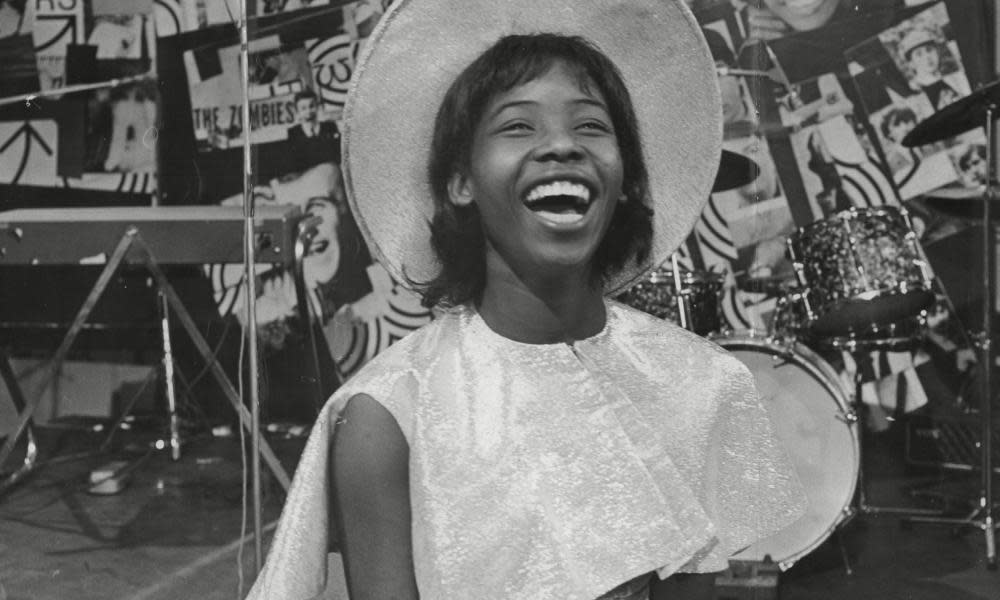Millie Small obituary

With international sales of 5m copies in 1964, the year of its release, the hit single My Boy Lollipop, sung by Millie, who has died aged 72, “opened the door for Jamaican music to the world,” said the producer Chris Blackwell. He had flown the 16-year-old Millie Small from Kingston to London to manage her career. Millie’s shrill, joyful vocals, married to a galloping ska rhythm in Olympic Studios in London in an arrangement by the Jamaican master guitarist Ernest Ranglin, were beamed out all that summer from the new pirate radio stations, such as Caroline, that were instrumental in helping promote the record. In May 1964, two months after the release of My Boy Lollipop, Millie was given a guest appearance on the ITV special Around the Beatles.
In both the UK and the US, My Boy Lollipop was a No 2 hit, kept off the top slot respectively by the Searchers and the Beach Boys. In America Millie rode the slipstream of the British Invasion started by the Beatles six months earlier; in New York she stepped off a plane – dubbed the Lollipop Special by a clever publicist – from the UK to a 30-strong police guard; fans screamed as she was presented with what was said to be the world’s largest lollipop.
By then a five-year veteran of the Jamaican music business, and trained to be an utter professional, Millie rose to her sudden brief superstardom with graceful aplomb. “It was just incredible how she handled it,” said Blackwell. “She was such a sweet person: very funny, great sense of humour. She was really special.”
What was at first considered a novelty record helped shift the parameters by which British listeners understood music, adjusting their ears to the offbeat but addictive ska rhythm, to which Ranglin had added such twists as a harmonica part; often this was claimed, even by Millie, to have been played by a young Rod Stewart – though this was not true. Ranglin was amused that what was considered a definitive Jamaican ska record had been played by sheet music-reading British musicians who previously had never heard such a sound.
Many archetypal releases have suitably exotic back stories and My Boy Lollipop is no exception. Originally released in 1956 in the US by Barbie Gaye as a shuffle blues, it had been a small hit. The tune’s songwriter, however, was a card player who had swapped his rights to it for a $100 bet that he lost. Morris Levy, a New York record boss, contacted the bet-winner and took over the rights to My Boy Lollipop, thereby owning the publishing income from this future multimillion-seller.
Although Blackwell had added Millie to a roster of what he considered to be the best of Jamaican talent for his fledgling Island Records label, he licensed My Boy Lollipop to the established Fontana label, appreciating that he needed larger resources to push what he was certain was going to be a hit.
Millicent Dolly May Small – known professionally as Millie – was born in Clarendon in south central Jamaica, where her father was a poorly paid sugar plantation overseer, and she had seven brothers and five sisters. At the age of 12 she won the 30-shilling second prize at the Vere Johns talent show, a route to stardom for many Jamaican acts, by singing and dancing a routine she used to amuse her family.
After the talent show she moved to Love Lane in Kingston to live with an aunt and early in 1962 she auditioned for Clement “Coxsone” Dodd, the sound system operator whose Studio One label had become an influential force in Jamaica. Impressed by her vocal similarity to Shirley Goodman of the US R&B duo Shirley and Lee, Dodd placed Millie under the wing of Owen Gray, an established hit singer on his label.
After working on her vocal technique, Gray recorded a number of duets with Millie, in the Shirley and Lee mode, including Sugar Plum, a big Jamaican hit. Millie was then put together with Roy Panton, another aspiring local singer. In the spring of 1962 their tune We’ll Meet was a substantial Jamaican hit, the first of a string of successes for Roy and Millie.
Dearest Love, This World, There’ll Come a Day and Cherry I Love You were all hits for the duo. But there was little in the way of financial recompense from Dodd. Early in 1963, therefore, they moved to Lindon Pottinger’s Gaydisc label: their tune Marie was one of the big Jamaican hits of that summer.
Going on to work with Prince Buster, Roy and Millie released I’ll Go Over and Over for him. But then Millie’s parents were telephoned by Blackwell; he was convinced their daughter, more than anyone else then performing in Jamaica, could become an international star, he told them. He even became her legal guardian for her trip to the UK.
“The problem was that after My Boy Lollipop,” he said, “we just couldn’t find another song of that calibre.” Blackwell was shocked when he returned to Jamaica with Millie: her mother had become so in awe of her daughter’s publicity that she curtseyed to the girl. “As though she was the queen,” said Blackwell. “I thought, ‘Oh boy …’.”
There were a couple of singles that scraped the charts, but Millie’s destiny seemed to be that of a one-hit wonder. After a problematic relationship much of her income disappeared. Learning of this, Blackwell bought her a home in Britain and nurtured her finances. Every year she would earn performers’ fees from My Boy Lollipop, the sales of which eventually topped out at 7m.
Bolstered considerably by the birth of her child, Jaelee, in 1984, Millie thereafter devoted much of her life to her daughter, who survives her.
• Millie (Millicent Dolly May) Small, singer, born 6 October 1947; died 5 May 2020

 Yahoo News
Yahoo News 
